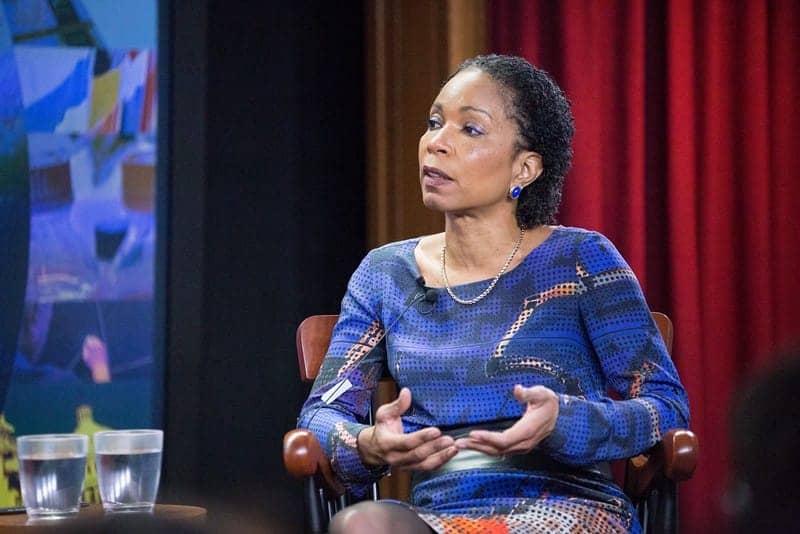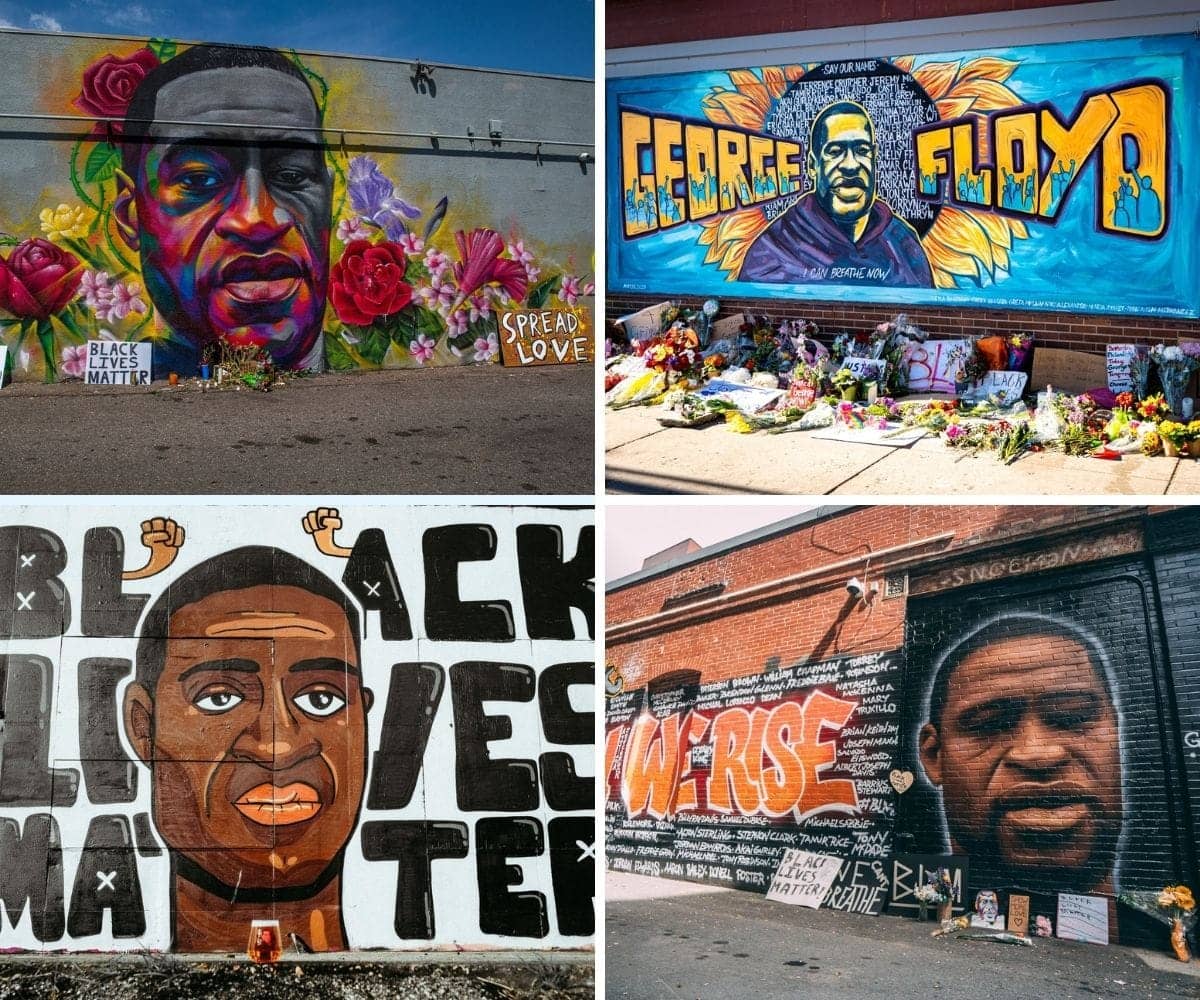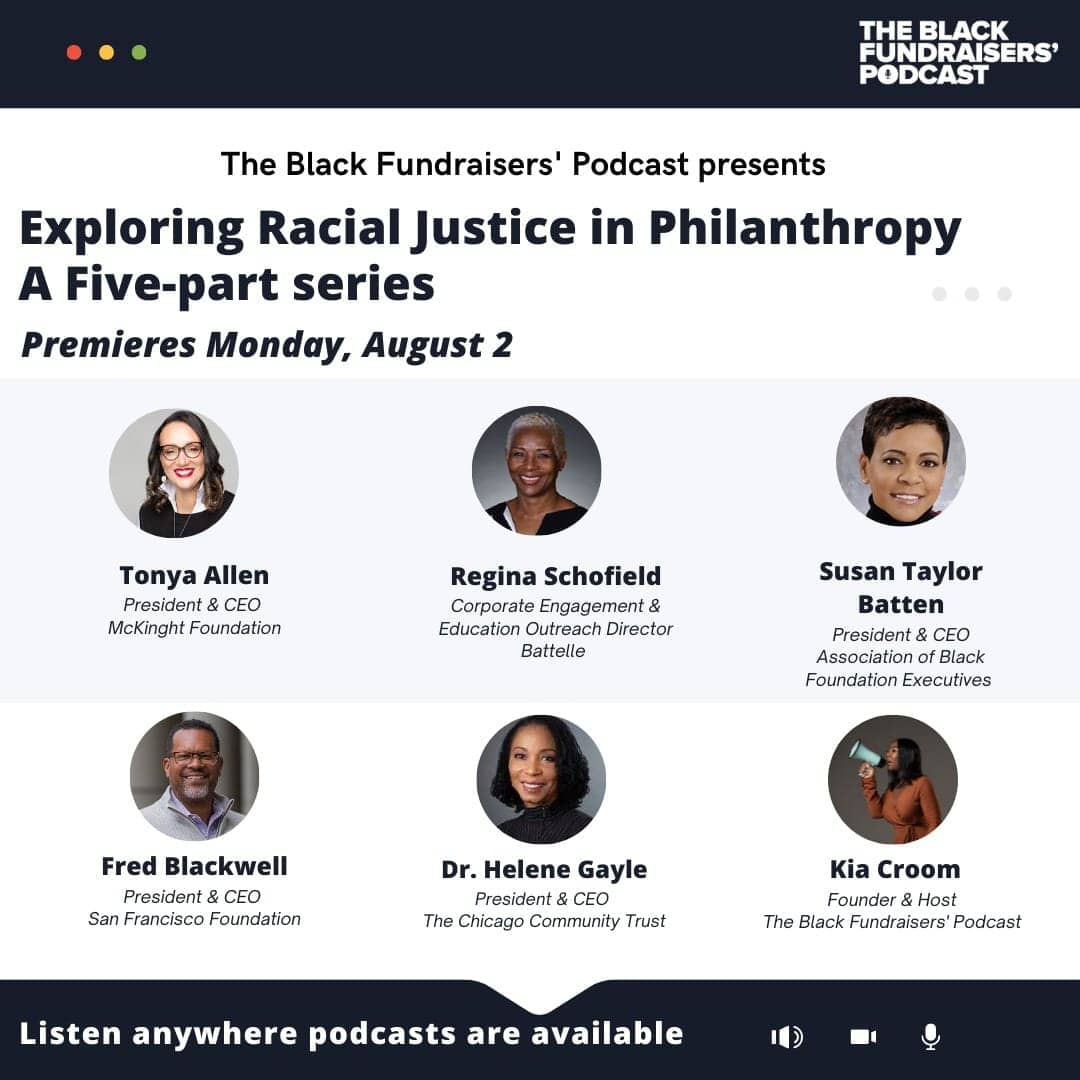
by Aisha Murphy, Communications Director, Croom Institute for Fund Development & Social Change
The Black Fundraisers’ Podcast kicked off August’s Black Philanthropy Month with a special five-part series entitled “Exploring Racial Justice in Philanthropy” featuring five Black philanthropy executives. Each weighed in on the importance of equity-focused, responsive philanthropy that strengthens Black, Indigenous and people of color (BIPOC) led nonprofits.
The Black Fundraisers’ Podcast founder Kia Croom hosts five separate fireside chat-style conversations with Susan Taylor Batten, president and CEO of the Association of Black Foundation Executives (ABFE); Regina Schofield, corporate engagement and education outreach director for Battelle; Tonya Allen, president and CEO of the McKnight Foundation; Dr. Helene D. Gayle, president and CEO of The Chicago Community Trust; and Fred Blackwell, president and CEO of the San Francisco Foundation.
The series is available for download at www.kiacroom.com or anywhere podcasts are available. “Each one of these philanthropy leaders is leveraging his or her influence and authority to promulgate racial equity or justice within their agencies and communities through responsive charitable giving,” Croom said.
“Susan Taylor Batten has been championing racial equity in philanthropy and promoting responsive giving to Black-led nonprofits way before it became trendy following George Floyd’s murder. Tonya Allen relocated from Detroit to Minneapolis to advance racial equity in memory of George Floyd. Regina Schofield makes charitable investments in STEM education for children of color in communities across the nation.

“Fred Blackwell leads one of the nation’s largest community foundations with a racial-equity focused agenda. Dr. Helene Gayle leads one of the oldest and largest community foundations, with a strategic focus on closing the racial and ethnic wealth gap in the Chicago region,” Croom said.
Croom encourages listeners to tune in as she and guests discuss the philanthropy sector’s history of philanthropic discrimination and its impact on BIPOC-led nonprofits. They also examine the role people of color will play in pushing for a more equitable philanthropic sector.
Croom says she and guests explore the distinction between responsive philanthropic giving through a racial justice lens versus a racial equity lens. They also enumerate ways the philanthropy sector can strengthen BIPOC-led nonprofits, which research shows receive less funding and a higher degree of scrutiny than white-led nonprofits.

“Racial bias is embedded in every aspect of the philanthropic and grantmaking process. Over the last year, we’ve seen corporate and private foundations commit millions of dollars to racial equity. That’s a great start, but the philanthropy sector must address the structural, racist barriers that have fueled decades of inequitable giving to BIPOC-led agencies,” Croom said.
Croom founded the Black Fundraisers’ Podcast in January 2021 after reaching an “emotional crossroads” in her 20-year nonprofit career following the George Floyd murder.
“Having worked in a few predominately white-led organizations, I knew there were Black men and women who share my lived experience inside nonprofits – being marginalized, micro-aggressed and devalued. It’s sad because Black people – and people of color in general – are so vital to nonprofits, especially those serving communities of color. I wanted to give us a platform to not only discuss the challenges we contend with at work, but also to celebrate and encourage one another.
The Black Fundraisers’ Podcast celebrates, inspires and equips Black Fundraisers to excel and positively impact Black communities. It’s produced by the Croom Institute for Fund Development & Social Change, a 501c(3) agency working to increase minority representation in nonprofit executive leadership.
Aisha Murphy, Communications Director, Croom Institute for Fund Development & Social Change can be reached at croominstitute@gmail.com or 202-430-6829.





